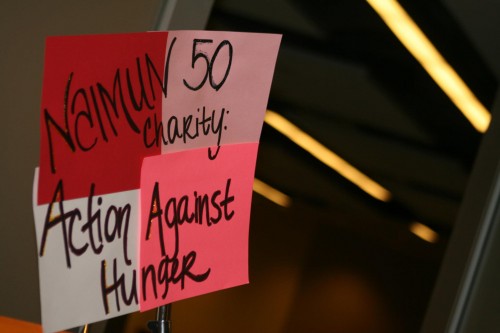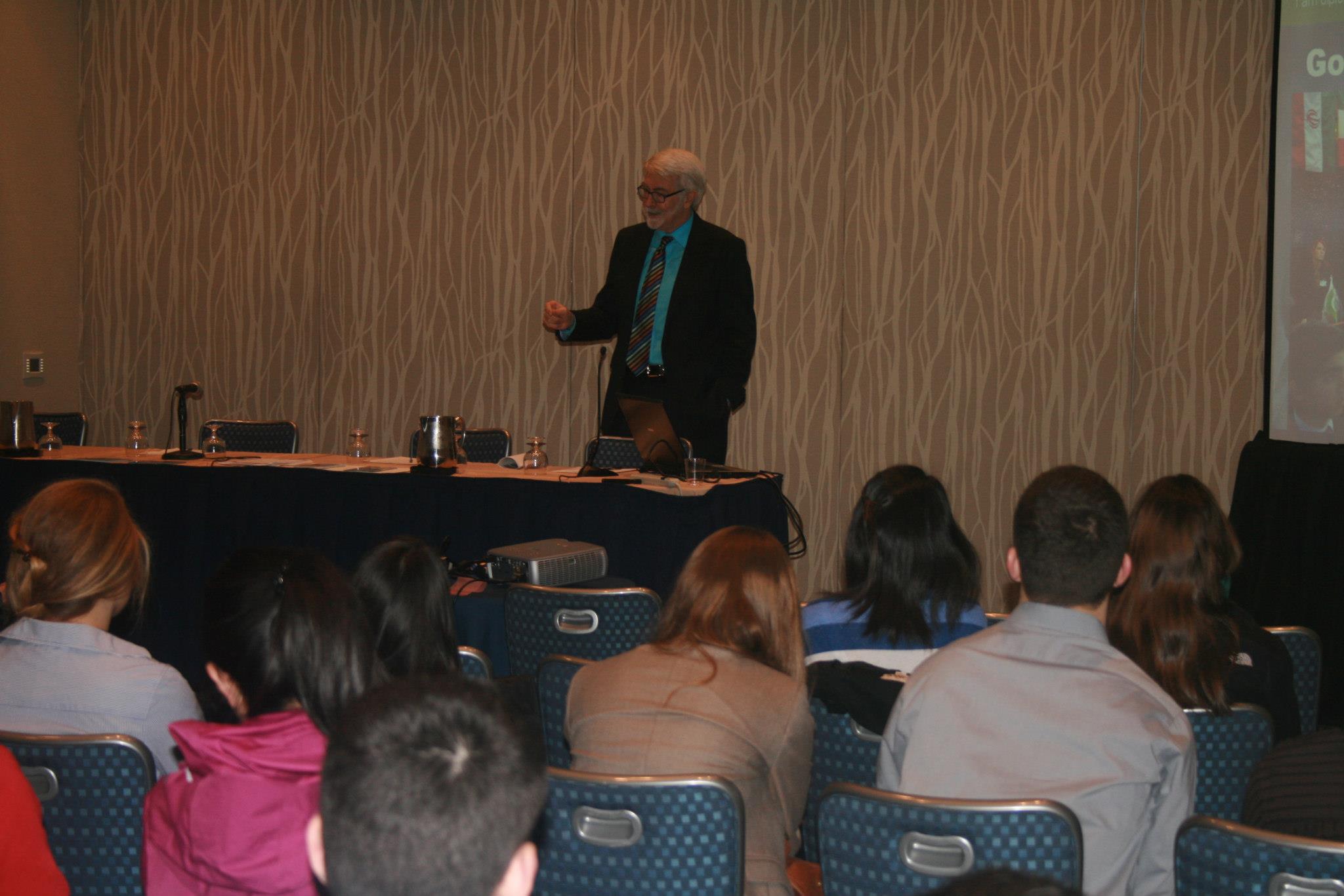
NAIMUN 50 was known for its excellence in integrating philanthropy in all aspects of the committee experience.
Many Model UN conferences offer competitive debate, but NAIMUN takes advantage of its Washington DC location and the resources of Georgetown University’s significant policy community to link the debates in committee to real-world challenges and broader debates and prepare them for careers in public service, and improve the standards of citizenship at home and abroad.
To begin with, NAIMUN will be continuing previous programming initiatives to promote a high conception of the duties of those engaged in foreign service – for example, the conference is proud to host the Director-General of the Foreign Service. On Friday morning, delegates take a break from committee to experience all that the American capital has to offer. Delegates will participate in student-led tours of various embassies, Washington monuments like the Capitol, State Department, Pentagon, and of course, Georgetown University itself.
Through this programming, delegates can link debates in committee to real-world issues. Delegates in the State Department, for example, can see the ways in which the foreign policy-making process has evolved since 1947, while delegates representing Saudi Arabia can visit the embassy of that country and meet real-world diplomats. Similarly, NAIMUN will continue to offer a Social Justice Roundtable, although rather than simply inviting representatives from area NGOs and charities, actual Georgetown students will talk about their experiences in enacting social change as students, empowering delegates to seek similar strategies in applying their experiences from committee to the real world.

NAIMUN 50 featured innovative programming, including a briefing from the US Department of State, above.
NAIMUN has also revamped its philanthropic efforts. Rather than simply collecting charity, as other conferences do, NAIMUN is finding new ways to link delegate involvement with on-the-ground outcomes. Working side-by-side with Room to Read, a reputed charity known for improving literacy and educational gender equality in the developing world, NAIMUN delegates will actually choose the projects to which the conference will contribute. Each time delegates contribute at the fundraising table, they can “tip their vote” towards library, school, or scholarship. They will also have a chance to meet with the charity’s founder, John Wood, who will be coming in to give a special speech on Friday evening.
Moreover, members of the NAIMUN Secretariat recently have begun accepting cryptocurrency donations for their philanthropic partner, Dogecoin, a Bitcoin-like cryptocurrency has been affectionately dubbed “the currency of the Internet” for its role in several high-profile charitable initiatives, among which include sending the Jamaican bobsled team to the Sochi Olympics. Ryan Cunningham, Director of Media & Technology and self-described ‘shibe,’ felt that accepting Room to Read donations in Dogecoin would be a fun way of integrating new developments in international finance with doge memes and traditional philanthropy. So far, several delegates and outside supporters have used the platform to support NAIMUN’s charitable efforts.
Ultimately, Model UN is about developing the skills of future leaders and public servants in a fun and engaging way. By taking advantage of the resources around it, NAIMUN can make sure that the conference experience transcends each committee session.
For more information on NAIMUN, check out their website and Facebook page. We’re also going to be Liveblogging throughout the conference, so make sure to look out for us!


